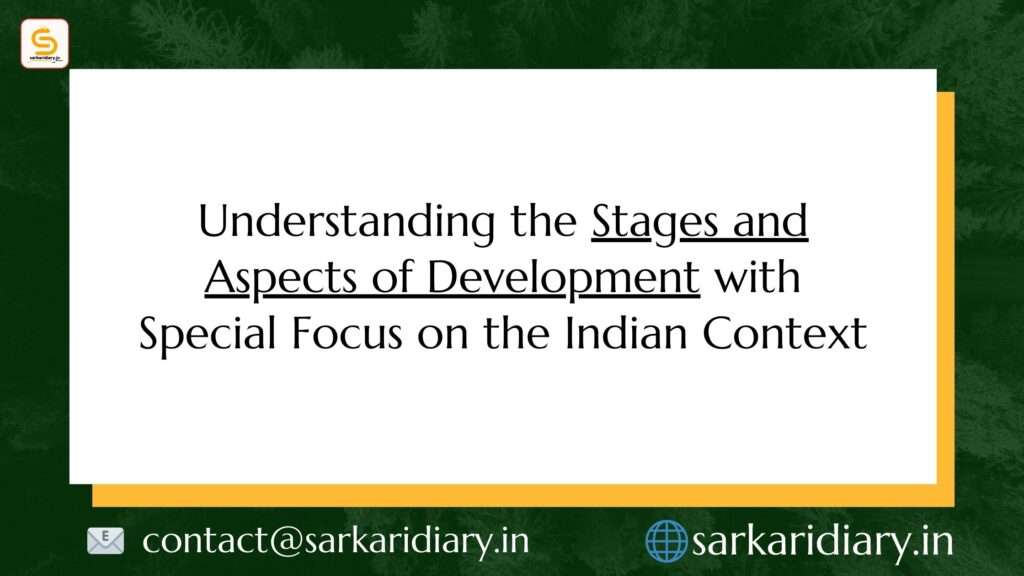Stages and Aspects of Development with Special Focus on the Indian Context: Development is a complex and multifaceted process that encompasses various stages and aspects. In the Indian context, development takes on a unique significance due to the country’s diverse population, rich cultural heritage, and specific challenges.
👉 Click Here to Visit B.Ed Notes Page

The Stages of Development
Development can be broadly categorized into different stages, each with its own set of characteristics and milestones. These stages include:
Early Childhood Development
Adolescence
Adulthood
Old Age
Each stage brings about significant changes in an individual’s physical, cognitive, emotional, and social development.
1. Early Childhood Development
This stage covers the period from birth to around 6 years of age. It is a critical phase when a child’s brain develops rapidly, laying the foundation for future learning and behavior. Early childhood development focuses on providing a nurturing environment, quality education, and healthcare to ensure optimal growth and development.
Visit Sarkari Diary Notes Section
2. Adolescence
Adolescence is a period of transition from childhood to adulthood, typically occurring between the ages of 10 and 19. It is characterized by rapid physical changes, hormonal fluctuations, and the development of identity and independence. This stage requires support and guidance to navigate the challenges of adolescence and make informed decisions regarding education, career, relationships, and health.
3. Adulthood
Adulthood encompasses the period from early 20s to middle age. It is a time of consolidation and further development of skills acquired during childhood and adolescence. This stage involves establishing a career, building relationships, starting a family, and contributing to society. Personal growth, financial stability, and emotional well-being are key aspects of development during adulthood.
4. Old Age
Old age, also known as the senior or elderly stage, typically begins around 60 years of age. It is a phase characterized by physical and cognitive decline, retirement, and changes in social roles and relationships. Despite these challenges, old age can also be a time of wisdom, reflection, and continued personal growth.
Aspects of Development in the Indian Context
Development in the Indian context is influenced by various factors, including:
Economic Development
Social Development
Political Development
Environmental Development
Cultural Development
These aspects interact and shape the overall development of the country and its people. For instance, economic development plays a crucial role in reducing poverty, improving healthcare, and providing access to quality education. Social development focuses on promoting inclusivity, gender equality, and social justice. Political development encompasses democratic governance, effective institutions, and citizen participation. Environmental development emphasizes sustainable practices and conservation of natural resources. Cultural development celebrates India’s diverse heritage and fosters cultural exchange and preservation.
Conclusion
Understanding the stages and aspects of development is essential for creating holistic and inclusive policies and programs in the Indian context. By addressing the unique challenges and opportunities at each stage and aspect, we can work towards building a prosperous, equitable, and sustainable society.